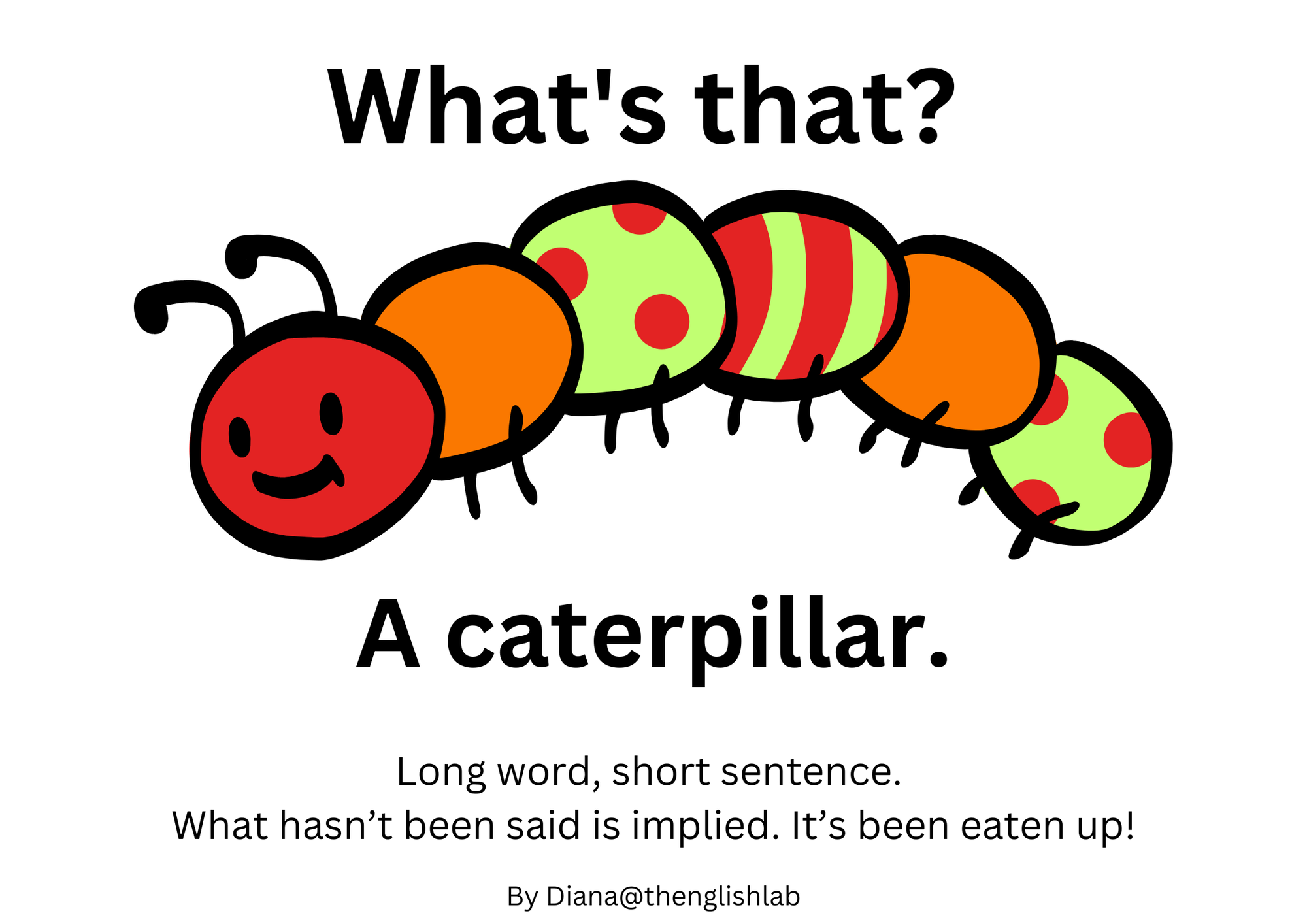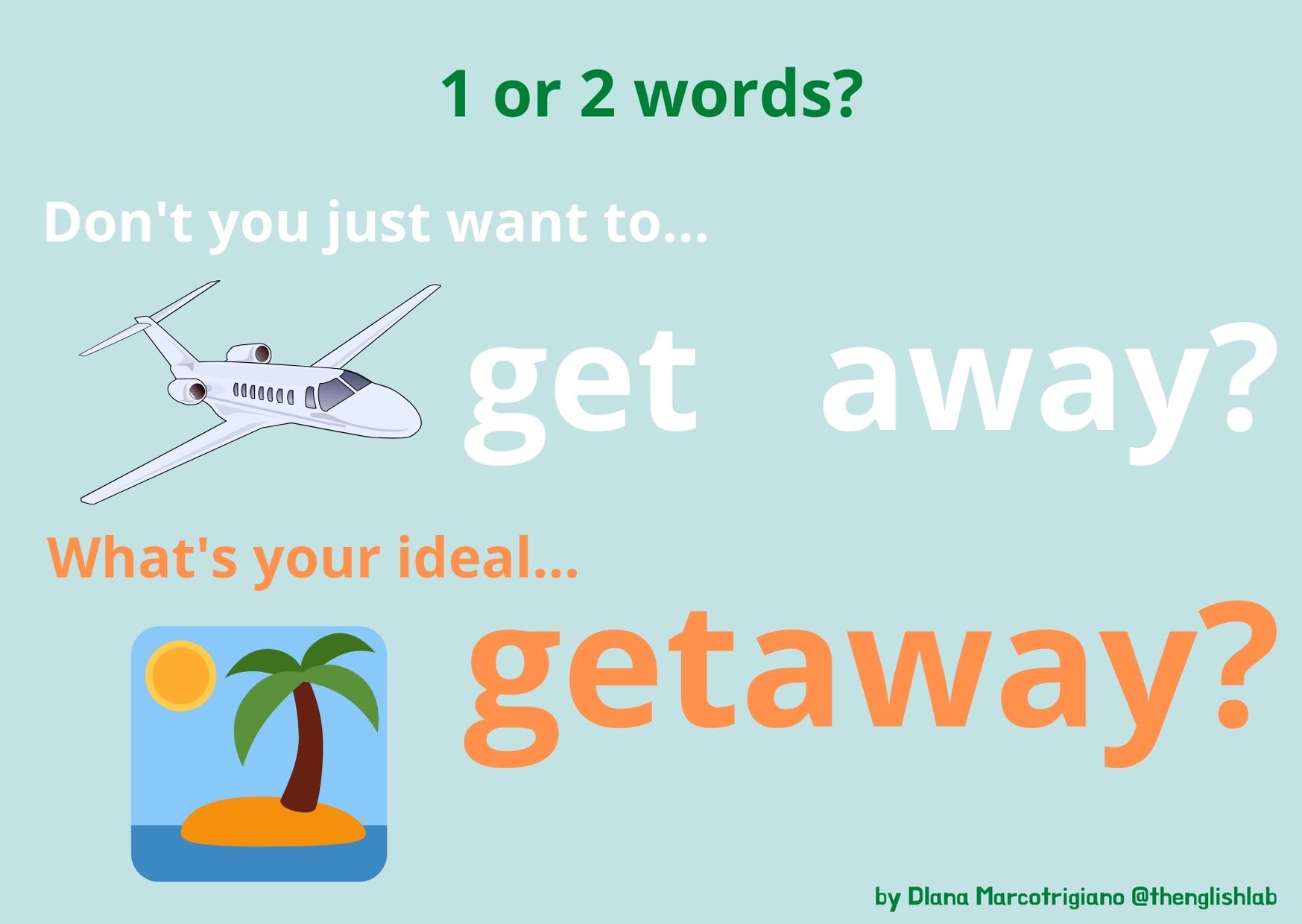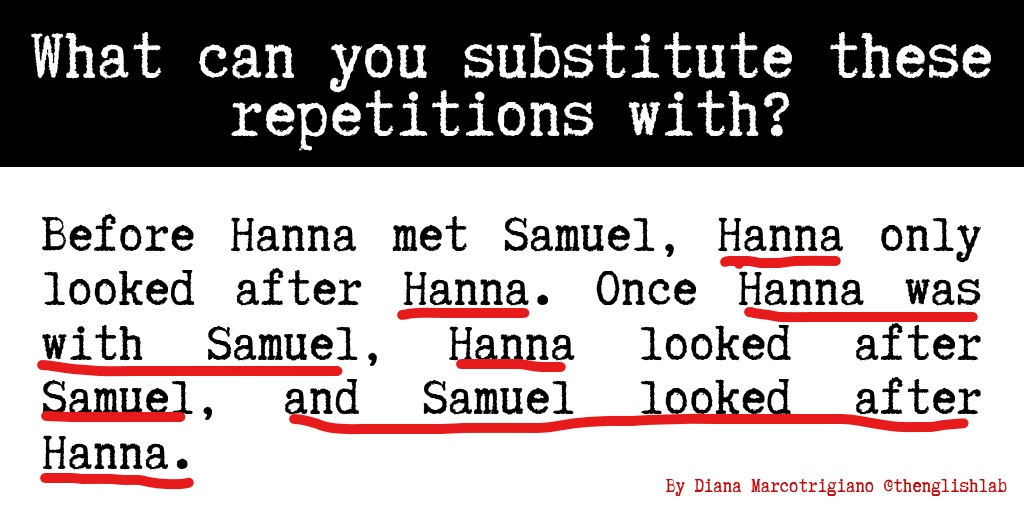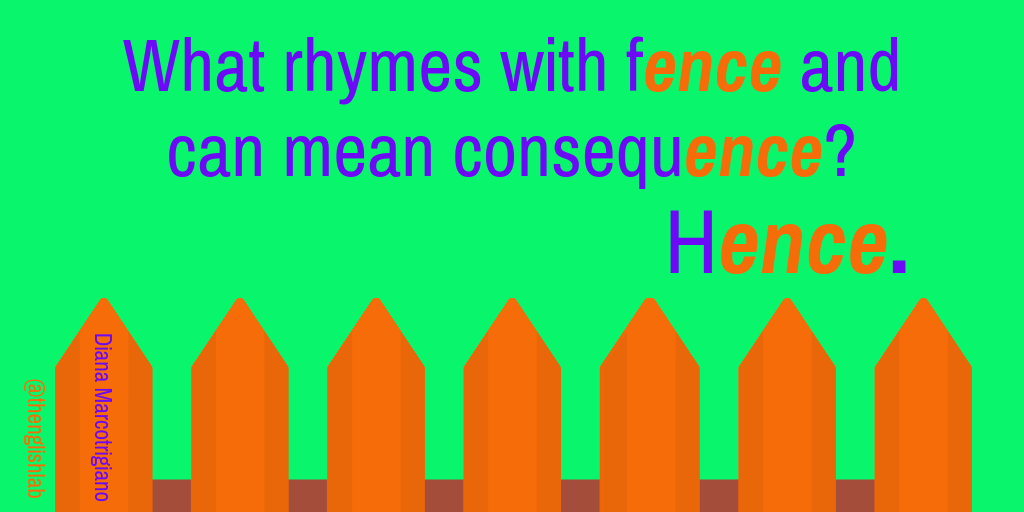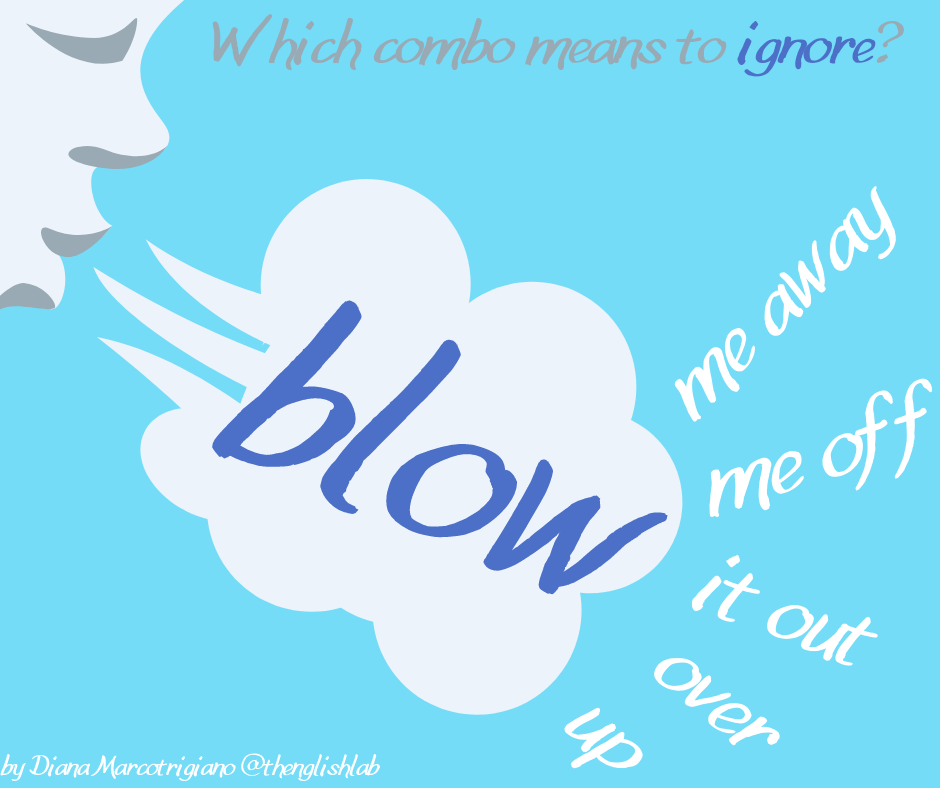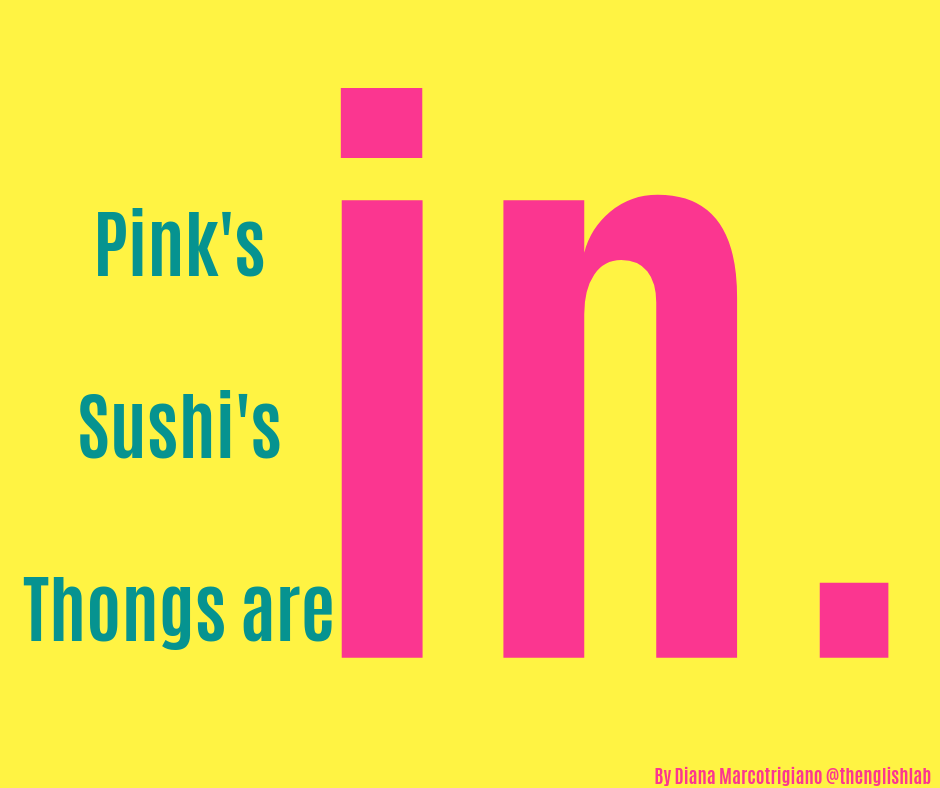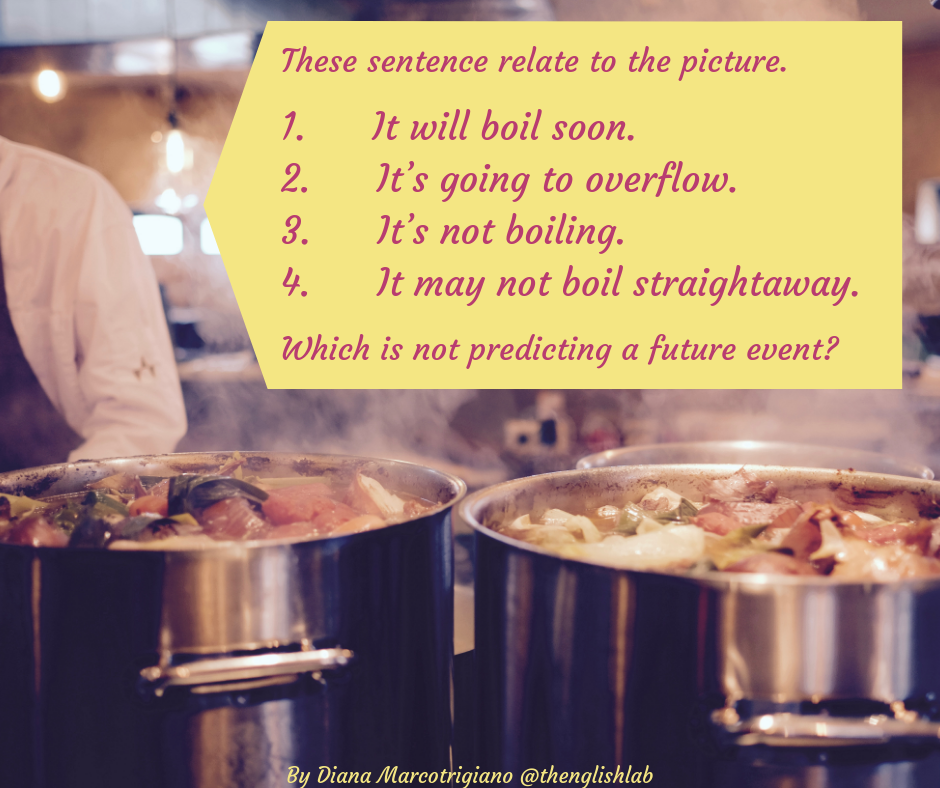Punctuation · 28 March 2023
Is this response too short to be a sentence with a full stop? In informal contexts, you can put a full stop after incomplete sentences in certain contexts, just like after the word caterpillar in the example above. The reason for this is that the response constitutes a complete thought; hence, it is a sentence at the underlying level albeit incomplete.
Idioms · 23 April 2021
I have written this post to draw your attention to when phrasal verbs can be written as one word. Now, let’s just look at why you’d sometimes find what is normally written as two separate words as a compound, either with or without a hyphen. The choice between the two is far from random.
Grammar · 16 October 2019
Why do we substitute? It’s to minimise repetition. Try telling a story without substituting, and you’ll quickly notice how distracting, unnatural, and even condescending repetitions can sound. There are linguistic devices you can use to improve the flow of your spoken and written discourse, bringing your performance from B2 to C2. One strategy to avoid repetition is using pro-forms.
Grammar · 29 September 2019
Linking words are just that: words that link. They are a type of cohesive device, so they can be likened to glue because they join thoughts together. They link words, phrases, clauses, sentences, and even paragraphs to show how thoughts are related. When used well, they contribute to delivering a coherent message, one that is well-organised and easily understood in its totality.
Idioms · 29 August 2019
Although at times it may seem like you can calculate the meaning of a phrasal verb by adding the sense of the words together, do not forget that you may have to also consider its metaphorical meaning. In other words, the sense is not always so transparent, so do not take the sum of the words so literally.
Grammar · 17 August 2019
Pink is in, and in this sentence ‘in’ is an adjective. In assigning a word to a part of speech, for example adjective or preposition, you need to look at what the word’s function is, rather than its decontextualised meaning. How can you be certain a word is an adjective or a preposition or any other part of speech? The position of the word, the other elements that surround it, and/or affixes can aid you.
Pronunciation · 06 August 2019
Why is it important to understand the qualities and contrastiveness of /ɪ/ and /iː/? If you believe that these sounds are the same and that they do not create different words, you won’t hear them as different; here, your lack of hearing is not due to a hearing impairment, but a cognitive strategy.
Grammar · 28 July 2019
The relationship between the two verbs in the same clause is closely knit both in grammar and in meaning. These two verbs together are called a verb pattern. A verb patterns is just that— a pattern, a predictable recurrence. The predictability in verb patterns stems from the first verb. There are many patterns to follow in making grammatically correct sentences which really make a huge difference between one level of the Common European Framework of Reference (CEFR) or another.
Punctuation · 21 July 2019
As a general rule, you use a full stop after a complete sentence that is not an interrogative. Then you must capitalise the first letter of the next word after the full stop. It is possible, however, to use a full stop even if the sentence is incomplete; these are called fragmented sentences. You could think of these incomplete sentences as a type of ellipsis (not the three-dot punctuation ellipsis).
Grammar · 13 July 2019
Verb forms in English which refer to future events are many. You must choose the right form to communicate what you want. When talking about the future, you may want to speak about your plans or your intentions. You may also use a future form to make promises or even offer to do something for someone. What I have just described are functions: plans, intentions, promises, and offers of assistance. Another function is prediction.

